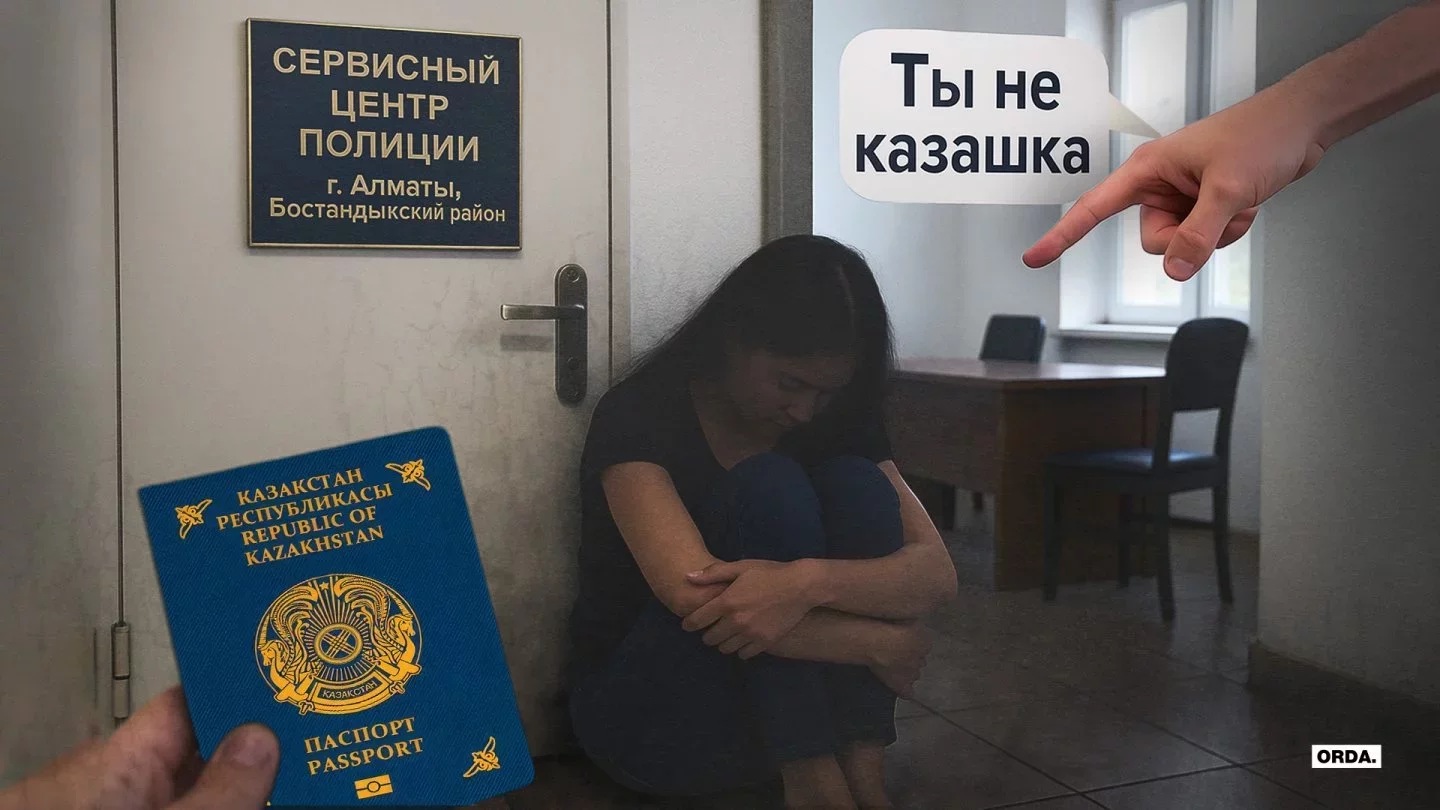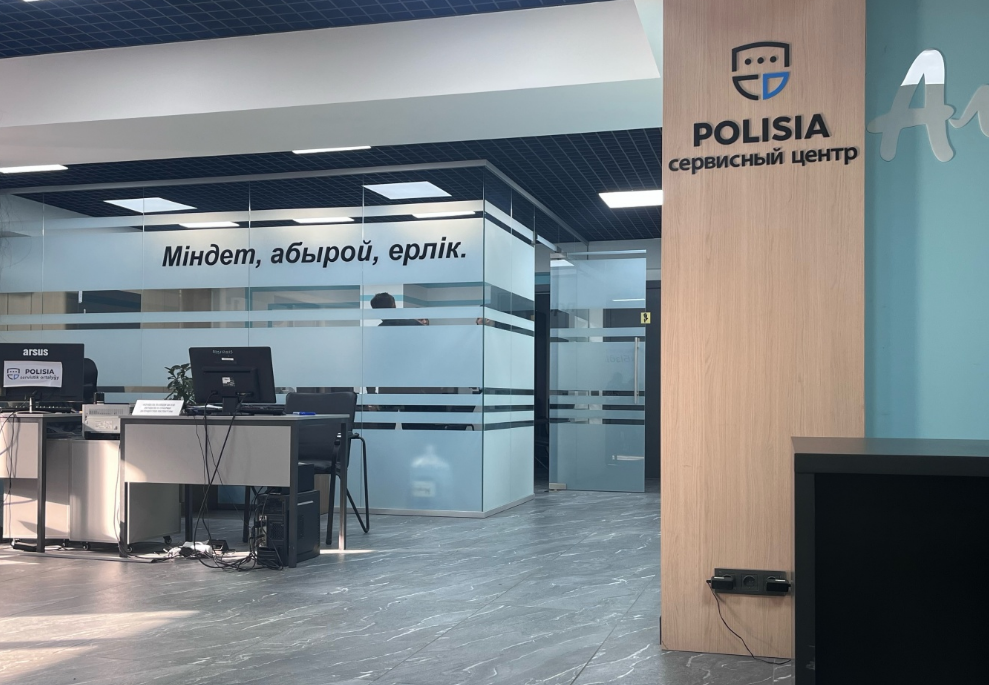“Kazakh Only If Your Father Is”: The Struggle to Prove Identity in Kazakhstan
 Photo: Orda.kz
Photo: Orda.kz
For many with Kazakh roots, the path to citizenship can seem straightforward— until bureaucracy makes itself known.
Orda.kz learned about the obstacles one applicant faced.
Maria (name changed) reached out to the Orda.kz editorial team, frustrated by her inability to secure Kazakh citizenship. At Almaty’s service center, officials deemed her name and appearance “too Russian” to be Kazakh, despite her deep ties to the country.
She was born in Russia to a Kazakh mother and Russian father and has lived in Kazakhstan all her life. At 14, a Russian passport seemed like the stronger option. But after Russia’s full-scale invasion of Ukraine in 2022, she no longer wanted ties to the country.
By 2024, she decided to pursue Kazakh citizenship.
Maria enrolled at a university in Almaty and put off the citizenship process for several years. She doesn’t specify why, but in 2024, she returned to the issue.
Maria chose to apply under the simplified procedure as a Qandas (ethnic Kazakh – Ed.), believing she met all the requirements and that she could gain citizenship in about three months.
However, her experience proved otherwise.
Caught In Bureaucracy
At the Bostandyq district police center, she was asked for a document proving her ethnicity — something neither Russian birth certificates nor passports include.

I went there alone twice, and both times they turned me away. They said I needed a document confirming my ethnicity — but such a document doesn’t exist in Russia. The staff also questioned my background because of my name and appearance. I don’t look very Kazakh, especially when I wear makeup,Maria said.
Maria’s birth certificate lists her mother as Kazakh, while her father’s ethnicity is not indicated, as he is Russian.
But even that wasn’t enough to convince the staff. So Maria decided to return with her mother to present her documents in person.
The third time I went there with my mother. The center employees saw that she was Kazakh, but they still looked at her documents with doubt. They sent us to the department of the State Labor Inspectorate Committee under the Ministry of Labor. And what did they say there? The same thing. A man there suggested I send a request to Russia to get confirmation of my ethnicity. But that’s not how it works.
Kazakh Only If Your Father Is
After visiting four different offices with no result, Maria decided to take a different route — applying for a residence permit. It would take longer than the simplified path to citizenship, but at least it wouldn’t require proving her ethnicity.
This is where the next hurdle emerged — proof of financial solvency. Denis Dzhivaga, director of the Kazakhstan International Bureau for Human Rights and Rule of Law (KIBHR), explained the issue:
“To apply for a residence permit or citizenship, you must have money in your bank account — currently more than four million tenge. You don’t need to pay it to anyone, but it has to be there. Not everyone can afford that. Only ethnic Kazakhs or those who lived in the Kazakh SSR are exempt.”
Maria had been denied Qandas status, but she is ethnically Kazakh.
When I returned to the service center in Bostandyq district, the employee told me, ‘You can only be considered a Kazakh through your father.’ He offered me a choice: bring proof of solvency or marry a Kazakh. Is that normal? This same employee had earlier asked if my mother was a ‘pure’ Kazakh. But what difference does that make? Her ID says she’s Kazakh, and that should be enough,Maria said.
She was advised to try a different center. At the Almaly police service center, the staff listened carefully and didn’t reject her. They asked her to bring the full list of required documents along with a copy of her mother’s ID. That, it turned out, was sufficient to apply for a residence permit.
The Ministry of Labor and Social Protection confirmed the center’s approach. They explained that if a person’s passport or birth certificate does not indicate ethnicity, a special commission is formed. It conducts an interview and reviews supporting documents — in Maria’s case, her mother’s ID would qualify.
Based on that, the commission decides whether to recognize the applicant as ethnically Kazakh.
Maria was never offered this option at the first service center. But Orda.kz has since shared the ministry’s response and further guidance with her. There is still a chance she may be granted Qandas status.
Limited Information or Reluctance?
While working on this story, Orda.kz came across another young woman, Anna (name changed). She, too, faced difficulties in obtaining Kazakh citizenship, but her situation was quite different. Anna is Russian, born in Kazakhstan.
I was born in Almaty. But at the time, my parents didn’t have Kazakh citizenship. They entered the country on a migration card and later received a residence permit. I just never got around to applying for citizenship, Anna shared.
Because she hadn’t taken steps earlier, when she approached the migration service three months before turning 16, she was told she wouldn’t be granted citizenship.
The reason lies in Kazakhstan’s citizenship principle: Jus Sanguinis, or "right of blood." This means a child inherits the nationality of their parents, not the country of birth.
Denis Dzhivaga explained that this is a common approach in countries like Kazakhstan. If Kazakhstan followed the principle of Jus Soli, or "right of the soil" (citizenship by place of birth), then every second visitor would receive citizenship of the country.
The principle of 'right of blood' in Kazakhstan exists not so much because of traditions (although that too), but because of the number of applicants for our citizenship. In our country, a lot of children are born to citizens of Kyrgyzstan, Uzbekistan, Tajikistan, and Afghanistan. They could all be given citizenship, but Kazakhstan is still focused on increasing the number of Kazakhs. That’s why we have the Qandas program, aimed at encouraging the return of ethnic Kazakhs, he said.
Anna’s parents quickly acted. Within three months, they renounced their Kyrgyz citizenship and acquired Kazakh citizenship, allowing Anna to do the same.
The rules around citizenship haven’t really changed, but it used to be harder to get accurate information. People had to visit migration offices and get a list of required documents. By the way, each region had different requirements on this list. It was confusing. Sometimes, there were posters on stands in the departments. But the migration service did not explain its purpose. Now, with digital platforms like eGov and gov.kz, access to information has improved, said Dzhivaga.
Lawyer Igor Motin agrees. There’s no lack of information today, but the topic remains complex.
But now everything is clearly outlined in the law. It is succinct, written in simple language without any ambiguity. It is very easy to find information. But before... It’s not that society lacked information — people just misunderstood or misinterpreted things. These days it is easier.
But we also asked whether discrimination exists in the citizenship process. The experts were divided.
There’s no systemic problem. Each case is different. Sometimes people have criminal records, or there is delays in paperwork from their home countries — in Uzbekistan, for instance, renouncing citizenship takes a little longer than in other countries. Every case is unique,said Motin.
Dzhivaga, on the other hand, acknowledged a more nuanced issue:
Almost everyone is subject to a little discrimination. Most often, citizens of Afghanistan, Pakistan, Iran, and similar countries face greater scrutiny. They are given documents with great caution. These countries are unofficially blacklisted due to concerns over extremism or terrorism.
Since 1991, over 1.15 million ethnic Kazakhs have returned to Kazakhstan. So far in 2025, 4,427 people have received Qandas status. Maria is not among them — yet. Orda.kz will stay in contact with her.
Original Author: Elizaveta Azarenka
Latest news
- Kazakhstan Prosecutor Opposes Deportation of 16-Year-Old Russian Teen
- Russian TV Channels Taken Off Air in Kazakhstan
- Mistaken Claim? Kazakhstan Denies $1B Contribution to the Board of Peace
- How many Kazakhstanis remain in the Middle East — MFA
- Kazhydromet Warns of High Flood Risk in Five Regions in 2026
- MP Calls for Prosecutor Review of Kazakhstanis’ Dubai Property
- Kazakhstan Moves to Legalize Private Detective Work
- Kazakhstan to Extend Gas Export Ban for Six More Months
- Majilis MP Calls to Soften Liability for Kazakhstanis Drawn into Foreign Wars for Pay
- The Delivery of 51 Stadler Passenger Coaches Has Been Delayed
- Kazakhstan Returns Nearly 1,000 Citizens From the Middle East
- Damaged Baikonur Launch Pad Facility Restored After 2025 Collapse
- A Rare Black Melanist Wolf Was Shot in Eastern Kazakhstan
- Kazakhstan Maintains Neutral Stance on Middle East Escalation
- Kazakh MFA: Citizens Evacuated from the Middle East via Oman and Saudi Arabia
- Kazakhstan to Spend 4.6 Trillion Tenge on Road Projects Through 2029
- Central Asia Competes for the Skies: Why Kazakhstan Risks Falling Behind Uzbekistan on Jet Fuel
- The War in Iran Opens a Window of Opportunity for Kazakhstan’s Oil Sector, Analysts Say
- Iran Conflict Escalates Beyond the Gulf: What Kazakh Experts Say About Risks for Central Asia and Kazakhstan
- Kazakhstan Prepares Possible Evacuation of Its Citizens From Iran

